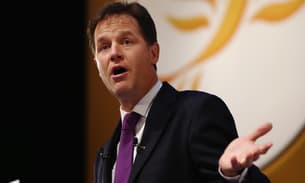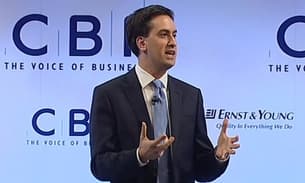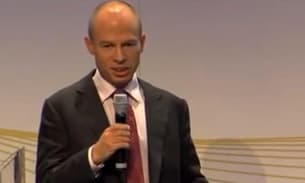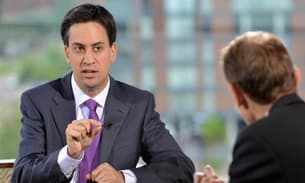Election expenses: The rules and risks
What are the rules governing election campaign spending? Political funding expert Professor Keith Ewing explains how the system works but explains there is a “black hole” in the way they are policed.
What are the rules governing the amount an individual candidate can spend in the election?
The rules which apply are to be found in the Representation of the People Act of 1983.
What they say effectively is that from the time when parliament is dissolved there are spending limits which apply to each candidate and these spending limits really depend upon the size of the constituency – whether it’s a county or a borough constituency.
But roughly we’re looking at a figure for each candidate of somewhere in the region of £10,000 to £12,000.
That is after the parliament’s dissolved?
Yes. Now there is an additional limited period* which was introduced in 2009 which applies in the period just before parliament is dissolved provided that the old parliament continues for its full parliamentary term.
*for the 2010 election this was 1 January until the day parliament was dissolved on 12 May.
But the critical period is the last month effectively before people go to the polling station. Effectively yeah exactly that’s where the campaign really hots up. the period which is sometimes referred to as the short campaign. It’s short, it’s intense and that’s where most of the money would be spent.
(Campaign spending guidance to election candidates as set out by the Electoral Commission)
What is meant by election expenses?
Well this has been a troublesome area really since controls on election expenses were first introduced in 1883. But there is now a definition in the act which refers to expenses which have been incurred in connection with the election. It then defines in a schedule to the act, specifically, the kind of expenses which we are talking about.
So there are a number of items which are listed including for example advertising costs er, the costs of literature which might be circulated to constituents, the holding of meetings, the cost of an election agent, and various accommodation and other administration er, costs.
Now these statutory rules which are the most important are also supplemented by guidance which is issued by the Electoral Commission and it gives a bit more detail as to the type of things that would fall within these different categories.
And why is it important that there are limits set to what a candidate can spend?
Well it’s critically important that there are limits and this has been recognised by the courts. The reason why we have limits is to ensure that there is a level playing field at an election. So that each candidate has a fair opportunity of reaching the voters. So in a sense a level playing field but also designed to ensure that no rich candidate can buy an election.
What we don’t want is to deteriorate to the situation in the United States where only millionaires effectively can stand for election because there are no spending limits and you can spend as much money as you have or as much money as you can raise.
Would a T-shirt or jacket with a sticker on it be considered a campaign expense?
I would say that this is a bit like in the old days maybe hiring a lorry to drive round a constituency to extol the virtues of a particular candidate. You may paint an advertisement on the side of the lorry or you may have advertisements carried on the back of the lorry. It would be very unrealistic to say that the only cost there is the cost of the advertisement or the painting of the slogan or the carriage of the slogan.
Who polices whether the candidates spend more than the limits or less than the limits or do it properly?
After the election the act says that the candidates’ agents must submit a return of election expenses and both the agents and the candidates must attest to the content of the declaration which the agent will have made.
And it is a corrupt practice to knowingly make a false declaration. And to commit a corrupt practice has some important implications for any individual who might be engaged in such activity. But the problem is that there is no proper policing of that process thereafter.
But of course it’s very difficult to know whether everything has been done properly. And there is, I would say, a black hole here in the enforcement regime that urgently needs to be addressed.
What happens if a candidate is found to have spent more than their limit?
Well [if] someone has spent more than the limit it’s what is called an illegal practice under the act. And if you commit an illegal practice and if as a result you are prosecuted and if you are convicted and found guilty then it’s a criminal offence for which you may be fined.
But it also brings with it some important political incapacities as the act says. And these incapacities include the annulment of the election and a bar form standing for election for a period of up to five years. So it has very, very serious consequences.
So if somebody was found to have breached their limit then the election would be null and void?
Well the person would not be able to take his or her seat in parliament and there would have to be a fresh election in the constituency in question. But the problem is of course that the sanction is a powerful one but the problem, the real problem, is ensuring that the law is properly policed and enforced.
Does that mean that candidates might try using techniques to stay below the limit?
Well that goes on all the time where you have regulation of any field of activity – there will be loopholes which people will identify and which they will seek to exploit in order to secure an advantage over rivals whether it be in politics or in other walks of life. So it would come as no surprise if such activity was taking place.
Professor Keith Ewing is a political funding expert at King’s College, London.




